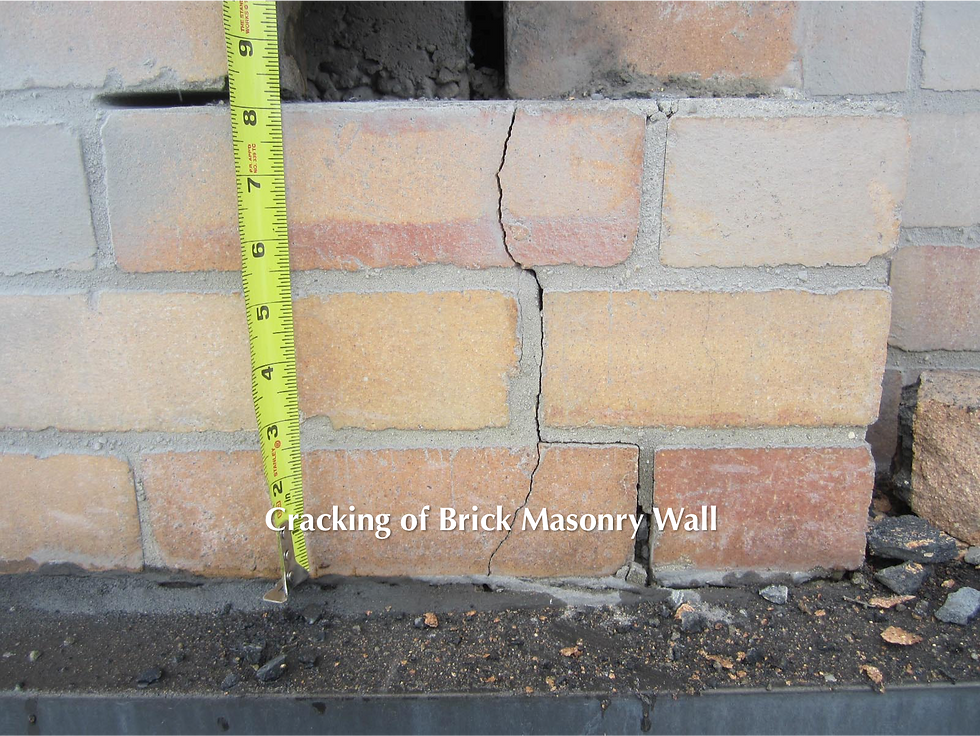



State-of-the-art Laboratories for Petrographic Examinations, Chemical Analyses, and Other Specialized Testing of Construction Materials
Recognized as one of the world's leading laboratories in petrographic examinations, CMC specializes in characterization, evaluation, testing, and failure investigations of construction materials using petrographic examinations (optical microscopy), SEM-EDS, X-ray Diffraction (XRD), chemical analyses (wet chemistry), oxide chemistry by X-ray fluorescence spectroscopy (XRF), micro-scale elemental mapping by micro-XRF and EDXRF, simultaneous water-soluble chloride, sulfate, and other anion analyses by ion chromatography (IC), automated potentiometric titration for acid or water-soluble chloride contents, rapid chloride permeability, sulfate content by XRF and IC, thermal analysis (TGA, DTG, DSC), Fourier Transform Infrared Spectroscopy (FTIR), and various physical tests from length change measurements for determining shrinkage to potentially deleterious reactions of cement-aggregate combinations to compressive/flexural strengths. Candidates for all these tests vary from clinker, to Portland, blended and various other cementitious composites, gravel, crushed stone, sand, lightweight aggregates to the Portland cement concrete and its variants, masonry units, masonry mortars from modern to historic mortars, dimension stones, ceramic tiles, protective coatings, various floor-coverings, etc. The range of investigations vary from materials characterization to quality evaluations to failure investigation.




Failure Investigations
Forensic investigations of construction failures by using the methods of petrography, chemical analysis, and other laboratory tests (e.g., XRD, XRF, IC, TGA/DSC, FTIR, etc.) are the main areas of our work. Some commonly requested types of failure investigations that we do routinely conduct include various types of concrete cracking from early to late shrinkage to expansions, surface distress e.g., scaling, spalling, aggregate popout, discoloration, crazing, mortar lift-offs, dusting, discoloration, delamination, causes for lower-than-design compressive strength, cracking due to alkali-aggregate reactions, delayed ettringite formation, chemical attacks from acid, alkali, and sulfates, salt hydration distress due to reversible phase transitions of hydrous salts, concrete and masonry staining and other surface discoloration, moisture and/or surface preparation-related floor covering failures, masonry mortar failures from disintegrations to water infiltrations due to loss of bonds, salt-scaling and related distress, anchoring grout failures, distress in sewer pipes, VCT pipe, and prestressed concrete cylinder pipes, and many other types. The following list provides the entire realm of deteriorations in concrete only that we do routinely investigate by concrete petrography.
The link below is a good article from Portland Cement Association, which discusses various types of concrete deterioration. Along with comprehensive laboratory investigations from petrographic examinations to chemical analyses and various specialized tests to investigate all these types of distress in concrete, we also provide a comprehensive assessment of the extent of damage and future serviceability of concrete.
CMC has extensive experience on the following list of
Concrete Deteriorations

We use Concrete Petrography (ASTM C 856), SEM-EDS (ASTM C 1723), chemical analysis (e.g., soluble chloride and sulfate contents, oxide compositions, etc.), and various associated testing to diagnose causes of various Concrete Deteriorations, and assess Concrete Durability.




Historic Preservations
As part of renovations and preservation of modern and historic structures, CMC provides laboratory testing of existing concrete, or masonry materials so that appropriate repair materials can be selected. Laboratory analysis of historic mortar, historic concrete, formulation of repointing mortar, repair concrete, and correct diagnosis of various concrete and masonry failures are our three main areas of investigation for the preservation industry. View some of the Historic Structures we have provided our services for on the Projects Pages.
Some of the services under historic preservation includes:
Mortar Testing, Historic Mortar Testing, Historic Mortar Matching, Historic Concrete Testing, Assessment of Best Pointing Mortar for Historic Mortar, Masonry Unit Testing, Petrographic Examinations and Chemical Analysis of Lime Mortar, Hydraulic Lime Mortar, Natural Cement Mortar, Portland Cement - Lime Mortar, Masonry Cement Mortar.
We use petrographic examinations, SEM-EDS, chemical analysis, and various other advanced tests for evaluation of modern and historic mortars according to the procedures of ASTM C 1324. For evaluation of bricks, stone and concrete masonry units we use petrography, water absorption, initial rate of absorption, compressive strength, and other tests according to the respective ASTM procedures.




Quality Assessment
Performance and durability of construction materials are regularly assessed through various laboratory techniques, including microscopy and chemical/mineralogical analyses at the center of such evaluation. See our Services page for a complete list of the ASTM Tests we offer for cement, aggregate, concrete, masonry, and other specialized products.

CMC, Inc. is an
ASTM accredited lab. We follow testing methods of ASTM International. For a complete list of the tests we offer see our Fee Schedule.
CMC, Inc. is a self-certified Small Business through the Pennsylvania Department of General Services, Bureau of Diversity, Inclusion and Small Business opportunities. A copy of our certificate is available upon request.
